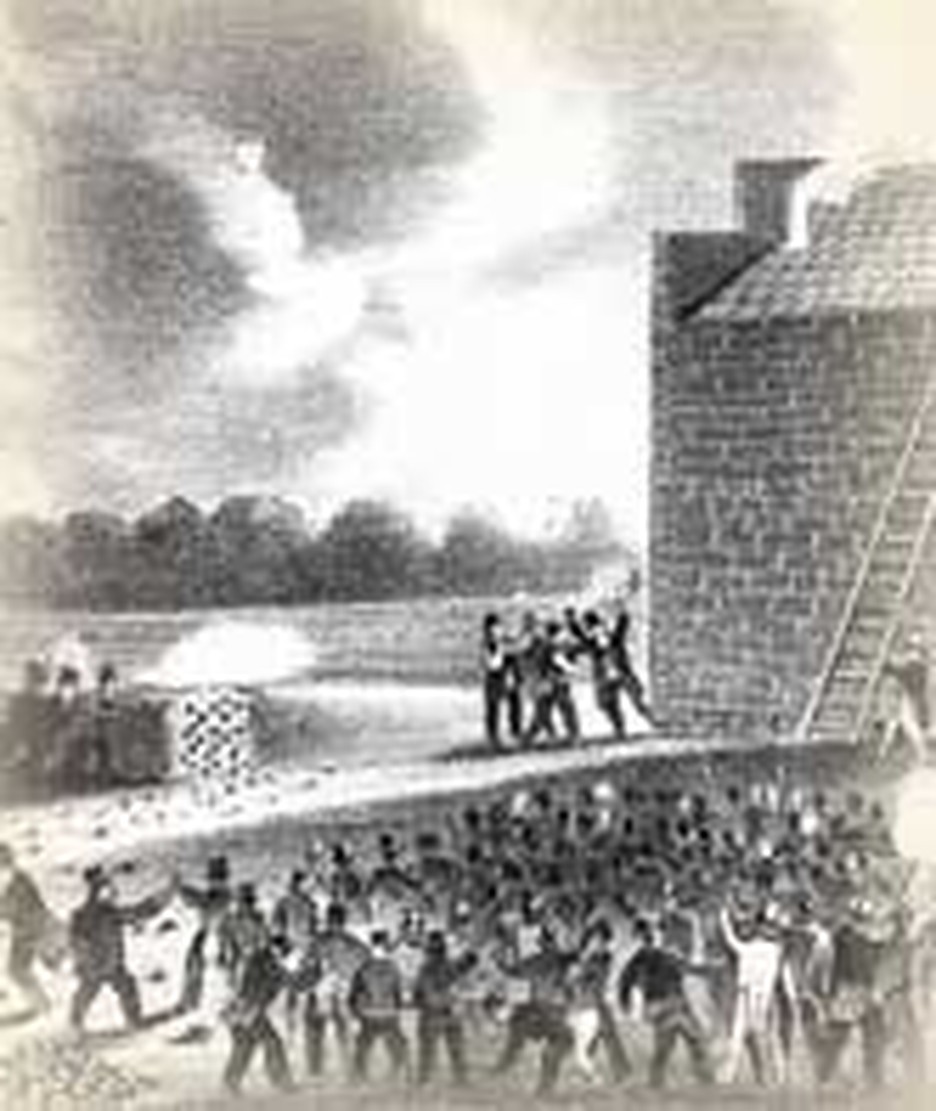
When Elijah Lovejoy was born in Maine on November 9, 1802, none of his family could have imagined the violent death he met almost exactly 35 years later. Elijah was murdered on November 7, 1837 and buried two days later, on what would have been his 35th birthday.
The trouble was, Elijah Lovejoy had become a clergyman and moved west to St. Louis in 1828. For the next six years he was editor of a Whig newspaper, and then founded the St. Louis Observer, which became an influential Presbyterian voice. But when Elijah's articles denounced slavery, the anger of the townspeople forced him to flee across the Mississippi River, and to settle at Alton, Illinois. There Elijah established the Alton Observer and continued advocating gradual emancipation and the abolition of slavery.
Twice crowds came and destroyed his printing presses. When a committee pressured Elijah to leave town, Lovejo replied, "You may hang me...you may burn me at the stake, tar and feather me, or throw me into the Mississippi, but you cannot disgrace me. I and I alone can disgrace myself; and the deepest of all disgrace would be, at a time like this to deny my Master by forsaking his cause."
About 3 a.m. Tuesday morning, November 7, 1837 the steamboat Missouri Fulton unloaded a new press for Elijah. Winthrop Gilman, Elijah's supporter, allowed him to place it inside his warehouse--a brave move, since it was full of costly merchandise that could be destroyed if violence errupted.
Having safely landed the press, Elijah Lovejoyand his friends thought that the threat of violence was past. Elijah comforted his pregnant wife with this assurance. He and others prayed. But talk in town was rough. Fearing violence, Elijah and Gilman moved their families. Gilman organized a small band of men to defend the warehouse and asked the mayor for help.
A drunken, pro-slavery mob formed. They ordered Gilman to give up the press or watch his warehouse burn. Gilman said he would defend the press with his life. Elijah agreed. The violence started with stone-throwing and soon escalated into shots. From inside the warehouse one of the defenders shot a young carpenter who had boasted he would "get" the abolitionists. The young man died thirty minutes later.
Shouting, "Burn them out," the mob tried to set fire to the roof of the building. Their first attempt failed. At their second attempt, Elijah stepped out to drive away the man with the torch. Immediately he was hit by five shots--two apparently from doctors hidden behind a woodpile--and died almost at once. With the building on fire and their leader dead, most of the defenders fled. The mob fired at them, but they escaped. One wounded man was saved with a tourniquet. The mob smashed the press. One of the doctors danced a jig as Elijah Lovejoy's body was carried home.
The murder of Elijah Lovejoy was a big mistake by the pro-slavery mob. John Quincy Adams wrote that Elijah's death was like an earthquake shock that would be felt not only across America, but in the most distant regions of the earth.
The murder swayed northern sentiment in favor of abolition. Senator Henry Wilson of Massachusetts declared that the murder of Elijah Lovejoy made it clear that the bitter pro-slavery forces would stop at nothing, and that the slavery question would be much more than just a bloodless clash of ideas. This grim prophecy was fulfilled twenty-five years later with the outbreak of the American Civil War.
Bibliography:
- Adapted from an earlier Christian History Institute story.
- Simon, Paul. Lovejoy, Martyr to Freedom. St. Louis, Missouri: Concordia, 1964.
Last updated July, 2007.


.jpg)